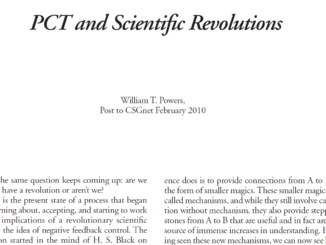
PCT and Scientific Revolutions
A short post to CSGnet with comments on LCS III […]

A short post to CSGnet with comments on LCS III […]
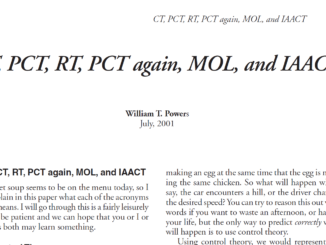
Bill Powers discusses each of these acronyms: Control Theory, Perceptual Control Theory, Reality Therapy, The Method of Levels, and The International Association for Applied Control Theory. […]
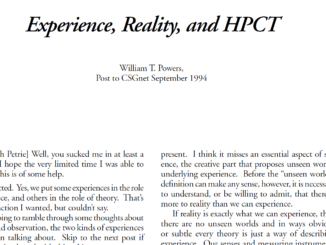
A short post to CSGnet on how we think about our senses, our experiences, and how we draw conclusions about the reality we live in (or whether we think we observe reality directly and merely need to report what we observe. […]
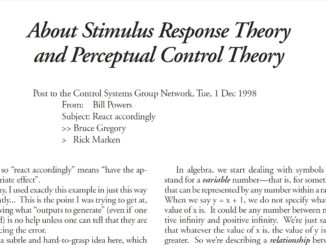
A short post to the Control System Group network (CSGnet) on the difference between cataloging behaviors and modeling systems that use behaviors to control perceptions. […]
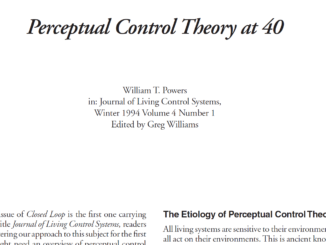
This intro to PCT is slanted toward those coming into to this subject from the physical sciences. Bill Powers develops an argument that leads from conventional views of behavior to the new view that PCT gives us, emphasizing in the end the odd role that organisms, seen through the eyes of PCT, play in a world otherwise dominated by physical laws. The point will be to show that control theory provides us with the germ of a radically new understanding, a break with all traditional theories of behavior—and many new ones as well […]
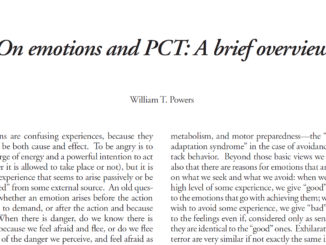
Explaining emotion from a PCT perspective. […]
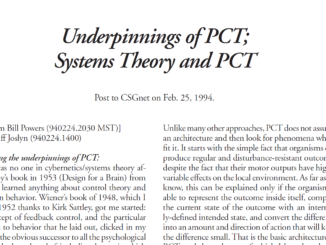
A discussion of the origin of PCT. […]
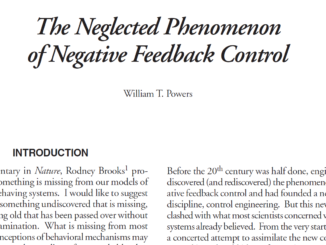
William T. Powers Control of perception has been reported at very basic levels of life.
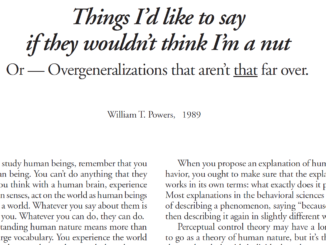
Another hard-hitting comment on the state of our contemporary behavioral sciences. […]
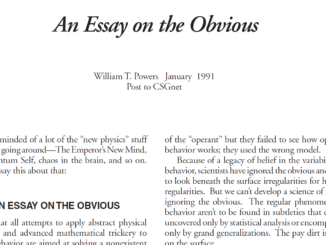
A hard-hitting essay by the creator of PCT on what you see when you look at behavior through the eyes of a physical scientist. […]
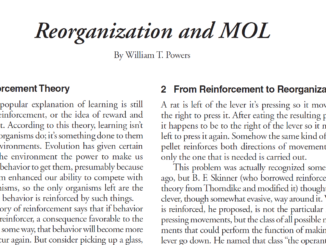
A continuation of PCT in 11 Steps, this is an overview of how control systems may come into being, change, cause internal conflict, and ways to resolve internal conflict. […]

From Reorganization to Evolution and Back
The concept of reorganization as such is irrefutable, but how can it work? In this essay and final comments, Bill Powers touches on the source and evolution of his thinking over the years. […]
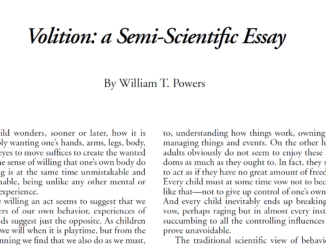
Every child wonders, sooner or later, how it is that simply wanting one’s hands, arms, legs, body, head, or eyes to move suffices to create the wanted result…. — So begins this lovely essay and overview of the fundamental issues that cry out for answers. […]
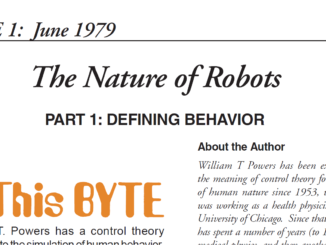
The BYTE articles are a book unto themselves – a four-part introduction to PCT and modeling. […]
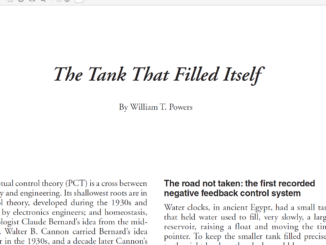
The Road Not Taken to a scientific psychology. […]
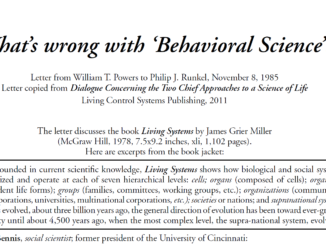
Letter to Philip J. Runkel, November 8, 1985 […]
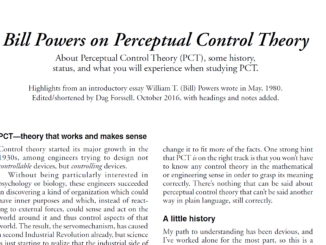
About Perceptual Control Theory (PCT), some history, status, and what you will experience when studying PCT. Highlights from an introductory essay William T. (Bill) Powers wrote in May, 1980 […]
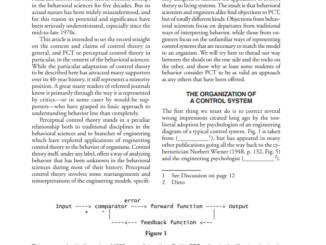
Comparing behaviorism, cognitive psych and PCT.
Misapprehensions and misstatements. […]
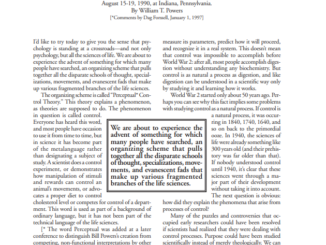
William T. Powers Many people have some sense of what control is about, but very few understand clearly how control works and even fewer (including control engineers) understand clearly what a control systems controls: Not […]
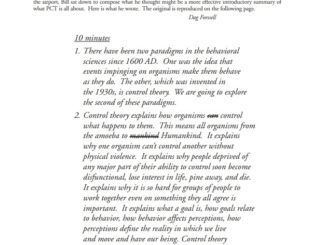
An effective introductory summary of what PCT is all about, by Bill Powers […]

Eva de Hullu and Matias Salgado have been working on this IAPCT website. Its purpose is to present PCT to the world, to connect people and ideas around Perceptual Control Theory and to provide a […]
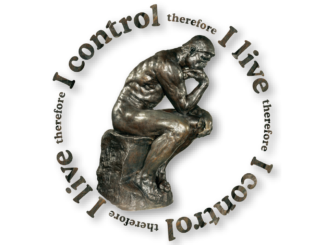
Elements of the control loop have been labeled slightly different by different people at different times and for different purposes, whether for a very plain explanation or for more mathematical treatment of the physical functions. […]

Control is a process of acting on the world we perceive to make it the way we want it to be, and to keep it that way. Examples of control: standing upright; walking; steering a car; scrambling eggs; scratching an itch; knitting socks; singing a tune. Extruding a pseudopod to absorb a nanospeck of food (all organisms control, not only human beings). The smallest organisms control by biochemical means, bigger ones by means of a nervous system. […]
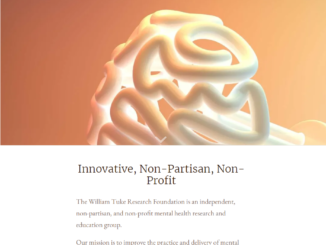
The William Tuke Research Foundation was founded in 2020 by Dr. Anamaria Churchman and Danny Whittaker, inspired by a mutual interest in the interplay of mental health and social hardship, and the shared desire to create a credible research organization that marries together novel, innovative mental health research with ambitious, grassroots community projects. […]
Copyright © 2022 iapct.org